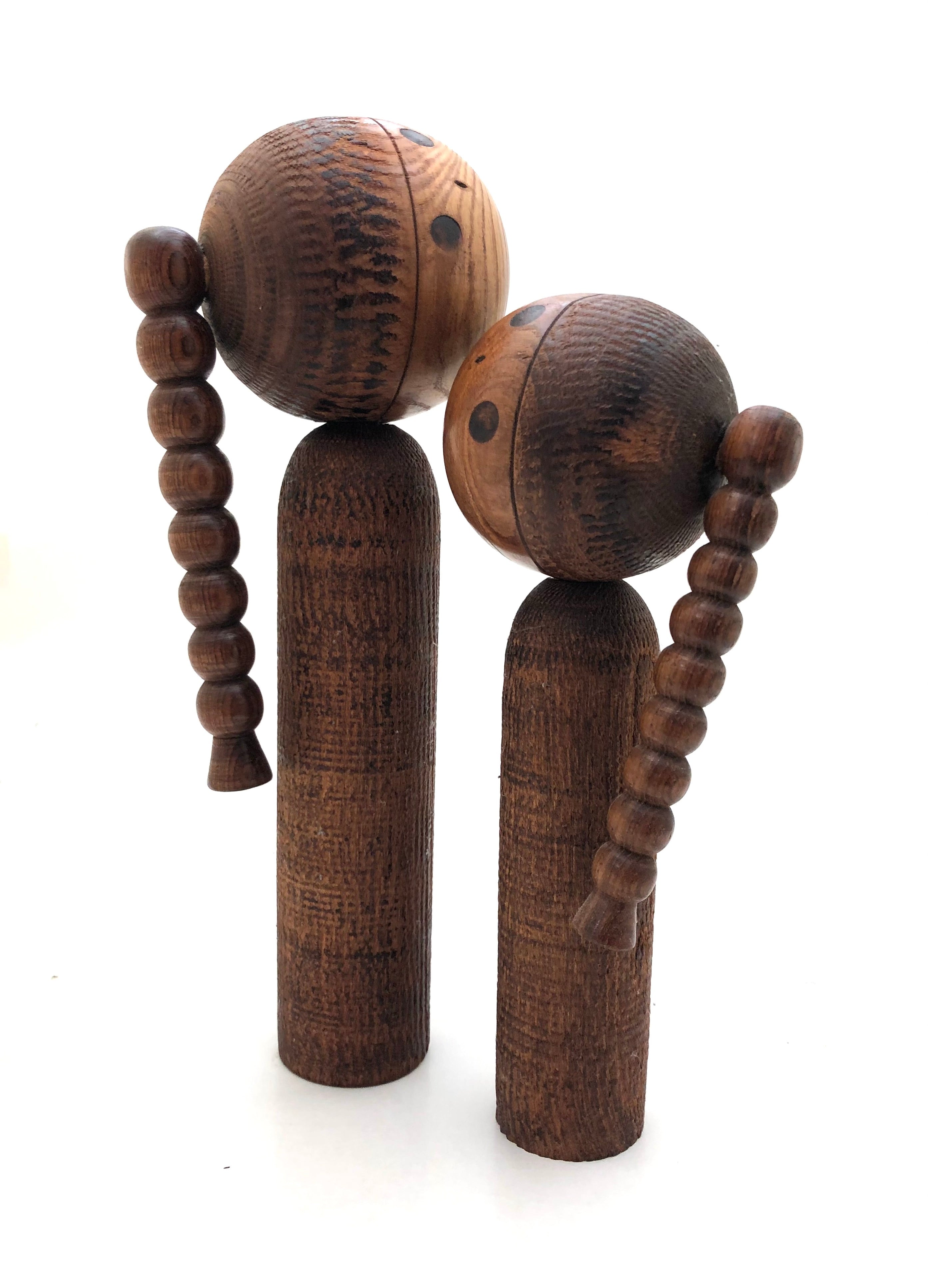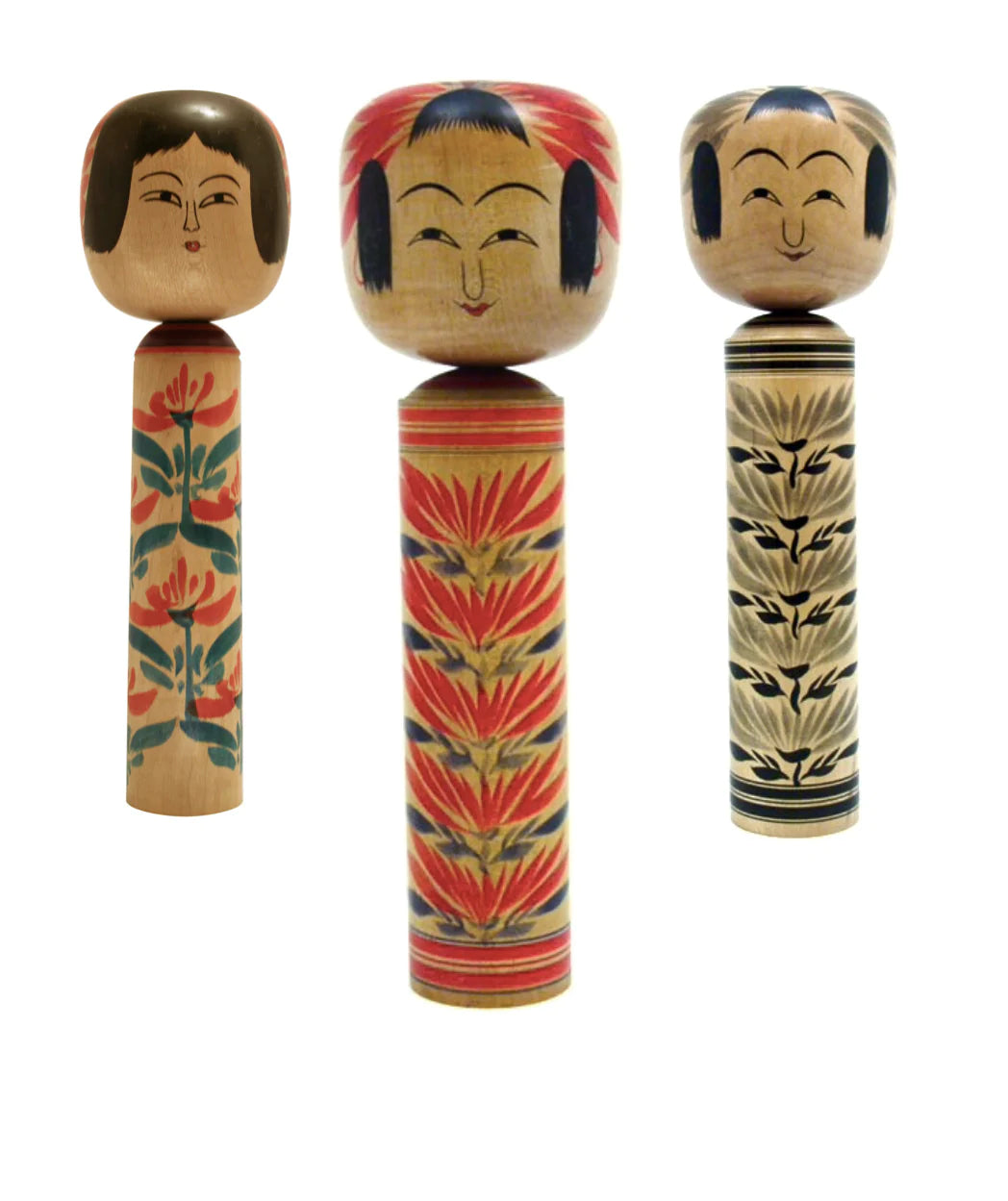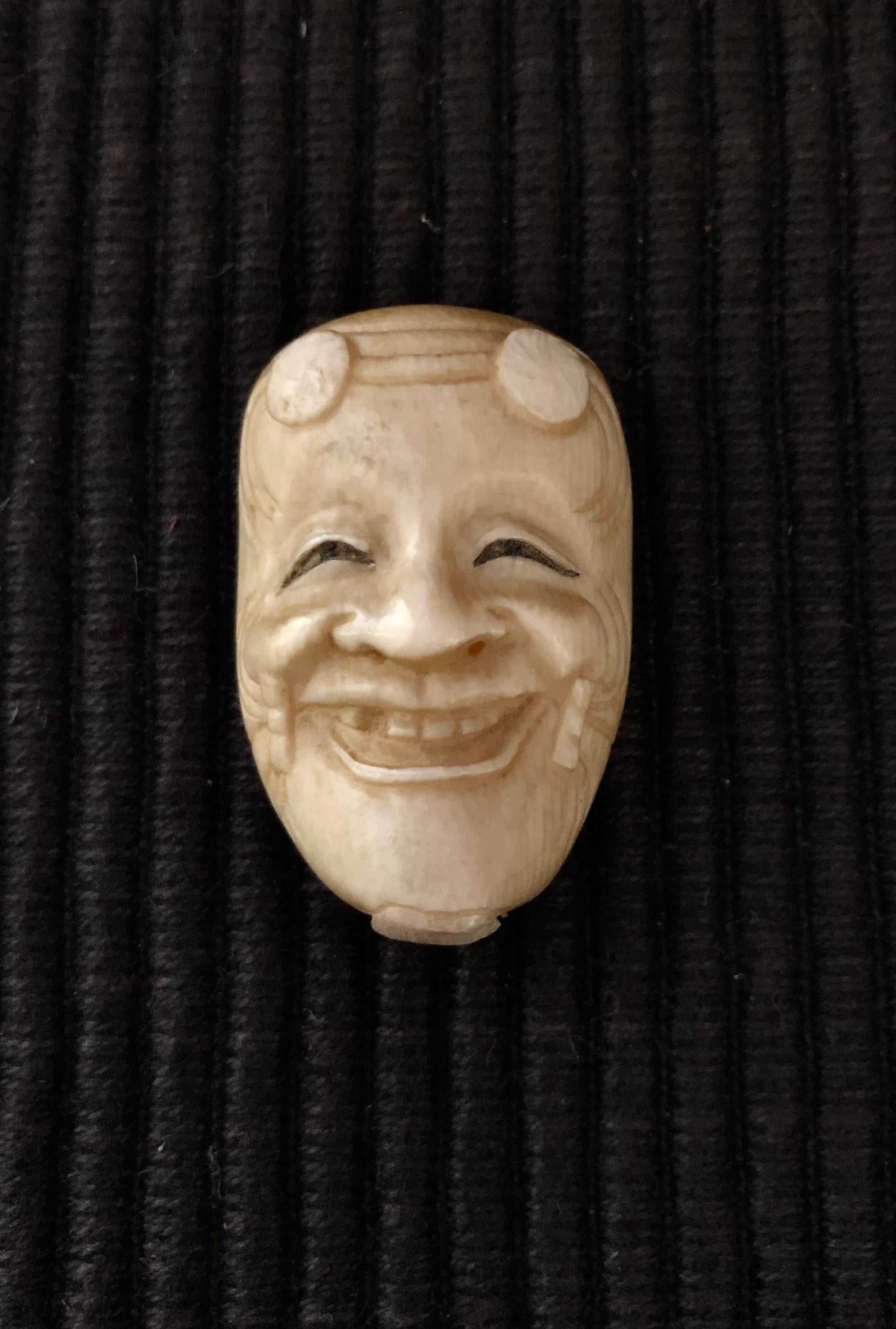
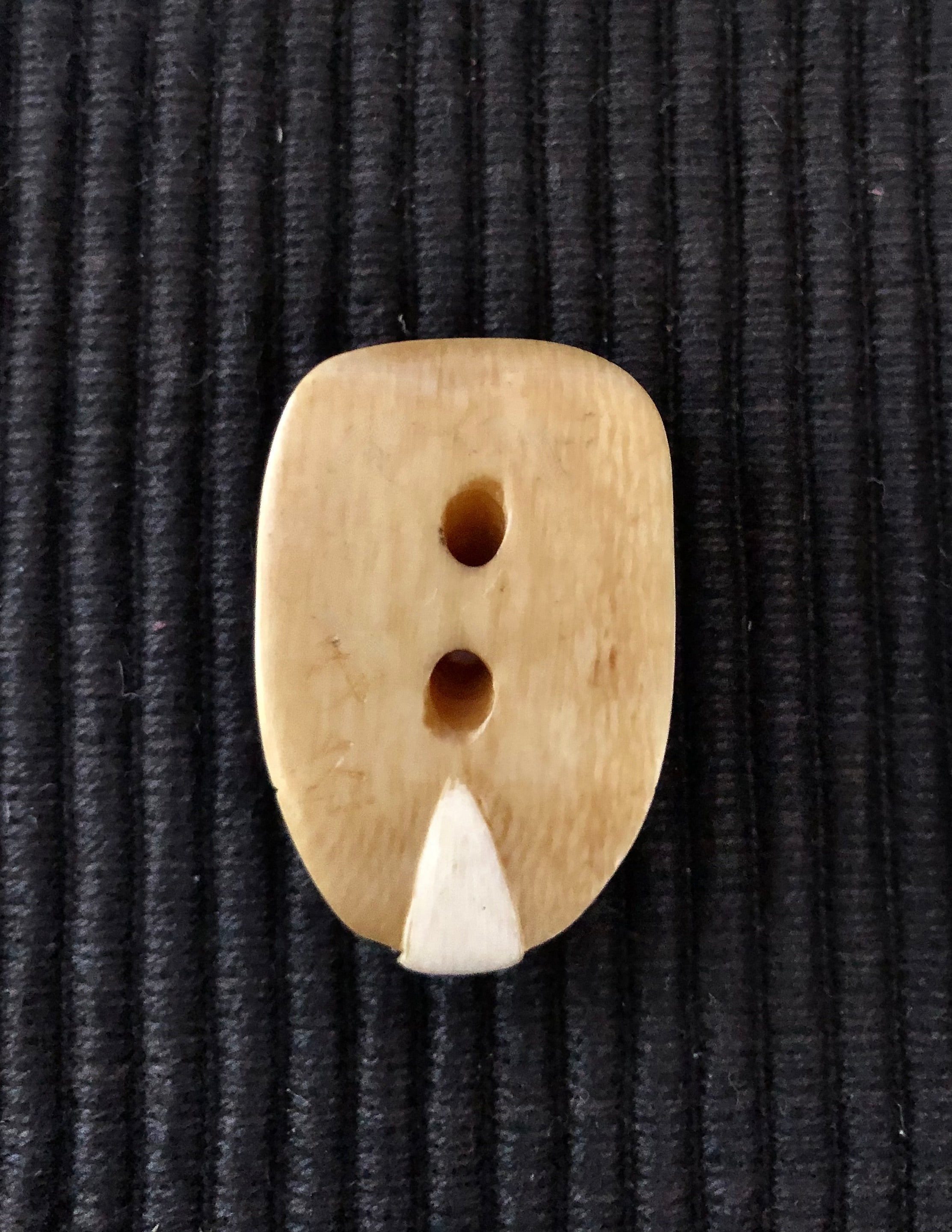
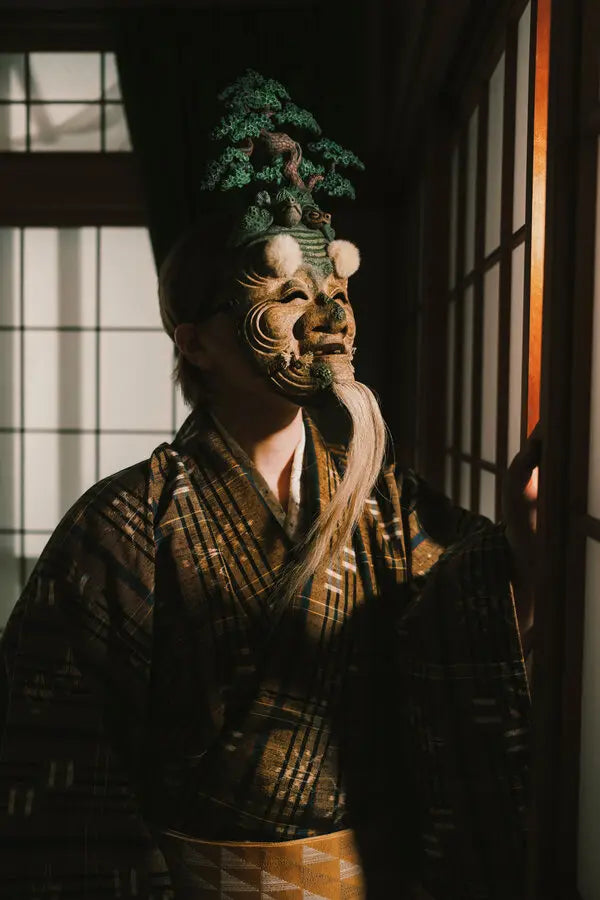
Japanese Antique Ivory Netsuke Carving of Okina | Shosai Tsuda
Dimensions: 1-3/8”h x 1-0”w x 3/8” thick
Offered is a wonderfully carved Ivory Netsuke representing Okina, the happy old man of wisdom and joy, and a distinguished character in many Noh dramas. It is exceptionally detailed from the rounded eyebrows, expressive open slits for his eyes and the abstract pattern of the deeply carved wrinkles around the forehead and cheeks. He exhibits two circular dots, (Urna) of lighter ivory on his forehead of Buddhist religious significance, and seen as a symbol of enlightenment and directly related to Bodhidharma. It has a happy smile of the deity symbolizing the country and the world at peace, bountiful harvests, long lives, and prosperity of the current and the future generations. His goatee, (Yagi hi-ge) is wrapped under his chin and onto the back of the carving and is of a lighter Ivory, which is a long flowing beard which makes him easily recognizable. Okina is unique in that it is the only performance in which the actor puts on the mask after he has appeared on stage. On the back are two Himotoshi, (aperture of a netsuke where the cord was fixed with which it was attached to the kimono's sash) of different sizes and the artist's signature, (Shosai Tsuda), who is from Taurumachi, Osaka, and lived from 1878-1928.
Condition: This beautifully detailed brooch is light to wear but quite large, in perfect original condition, beautifully patinated, with a 1900s "barrel clasp" on the back, (This type of fastener gets its name from the tiny barrel that is found on one end of the metal attachment to lock it in place), with the signature of the artist, (Shosai Tsuda), who is from Taurumachi, Osaka and lived from 1878-1928. The signature is an indicator of its age and was made before 1947.
NOTE: The Japanese, primarily before 1947, had a history of utilizing rare and historic animal bones and rare woods for many objects used by the samurai and upper classes at that time. Many of these art objects fell under the Okimono's decorative category, including Netsuke, Brooches, Hair Ornaments, functional objects as musical instruments, and furniture seen throughout this earlier part of history. A new dialogue during the Meiji period between Japan, (not China) and the West led to a concern for protecting many rare materials incorporated into art and craft practices. This changed to address customer interests and the changing ESA laws throughout the world influenced all production of art goods from this date forward. Any object being sold that falls into the endangered species category must be at least 100 years or older and substantiated by the signature and date on the piece for by radiocarbon dating.
Return Policy
Our antique/vintage pieces are identified/described and professionally photographed, and considered, “as is”, therefore all sales are final. Read our full refund and return policy.


